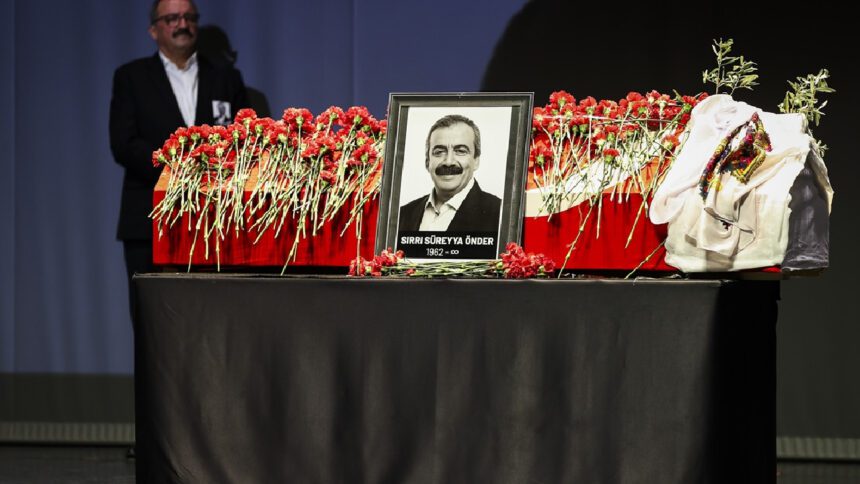The sudden death of Sırrı Süreyya Önder, a veteran pro-Kurdish politician and Deputy Speaker of the Turkish Grand National Assembly, has taken a dramatic turn following the revelation that a sabotage device was discovered on his vehicle weeks before his passing. Önder died on May 3, 2025, at the age of 62, after spending 18 days in intensive care due to a ruptured aorta. While his doctors maintain that he died of natural causes, new details have raised serious questions.
In a written statement released by the Peoples’ Equality and Democracy (DEM) Party, it was confirmed that on April 2, a device designed to puncture a tire was found attached to Önder’s car. The discovery was made after a parking attendant heard unusual noises while driving the vehicle and took it to a service center. There, mechanics found a sharp iron object fastened to the rear left tire—an apparent act of sabotage.
“The incident was reported to party leadership and necessary examinations were conducted,” the DEM Party stated. “All findings and evidence were shared with the relevant authorities. Due to the sensitivity of the matter, it was not publicly disclosed at the time.”
DEM officials also noted that no formal conclusions have been delivered to them regarding the ongoing investigation.
Önder was hospitalized on April 15 and remained in critical condition until his death on May 3. Doctors from Başakşehir Çam and Sakura City Hospital stated that Önder suffered a ruptured aortic artery and multiple organ failure, and found no medical indication of foul play. Istanbul Governor Davut Gül also confirmed that the hospital had not deemed the death suspicious and that the family did not request an autopsy.
However, the presence of a sabotage device, coupled with the political context surrounding Önder’s final months, has fueled speculation. Notably, Doğu Perinçek, chairman of the left-wing nationalist Patriotic (Vatan) Party, stated on April 25 that he had shown Önder video evidence of the sabotage attempt just hours before the latter was hospitalized. According to Perinçek, Önder confided that imprisoned PKK leader Abdullah Öcalan had warned them: “America and Israel will try to kill you.”
Önder played a central role in the Kurdish peace process and was part of the DEM Party delegation that held secret talks with Öcalan since December 2024. These negotiations culminated in Öcalan’s public call for the dissolution of the PKK on February 27, a landmark development that could bring an end to the four-decade-long insurgency.
In the immediate aftermath of Önder’s death, the PKK suggested the possibility of an assassination, claiming that both domestic and international forces opposed to a peaceful settlement may have been involved. The sabotage incident has only strengthened such suspicions, despite official denials.
The combination of Önder’s key political role, the undisclosed sabotage attempt, and the absence of a full forensic autopsy has prompted demands for a deeper, independent investigation. The case now sits at the intersection of Turkey’s most sensitive political issues: the Kurdish peace process, foreign intelligence concerns, and the legacy of a politician who spent decades walking the line between activism and state diplomacy.



